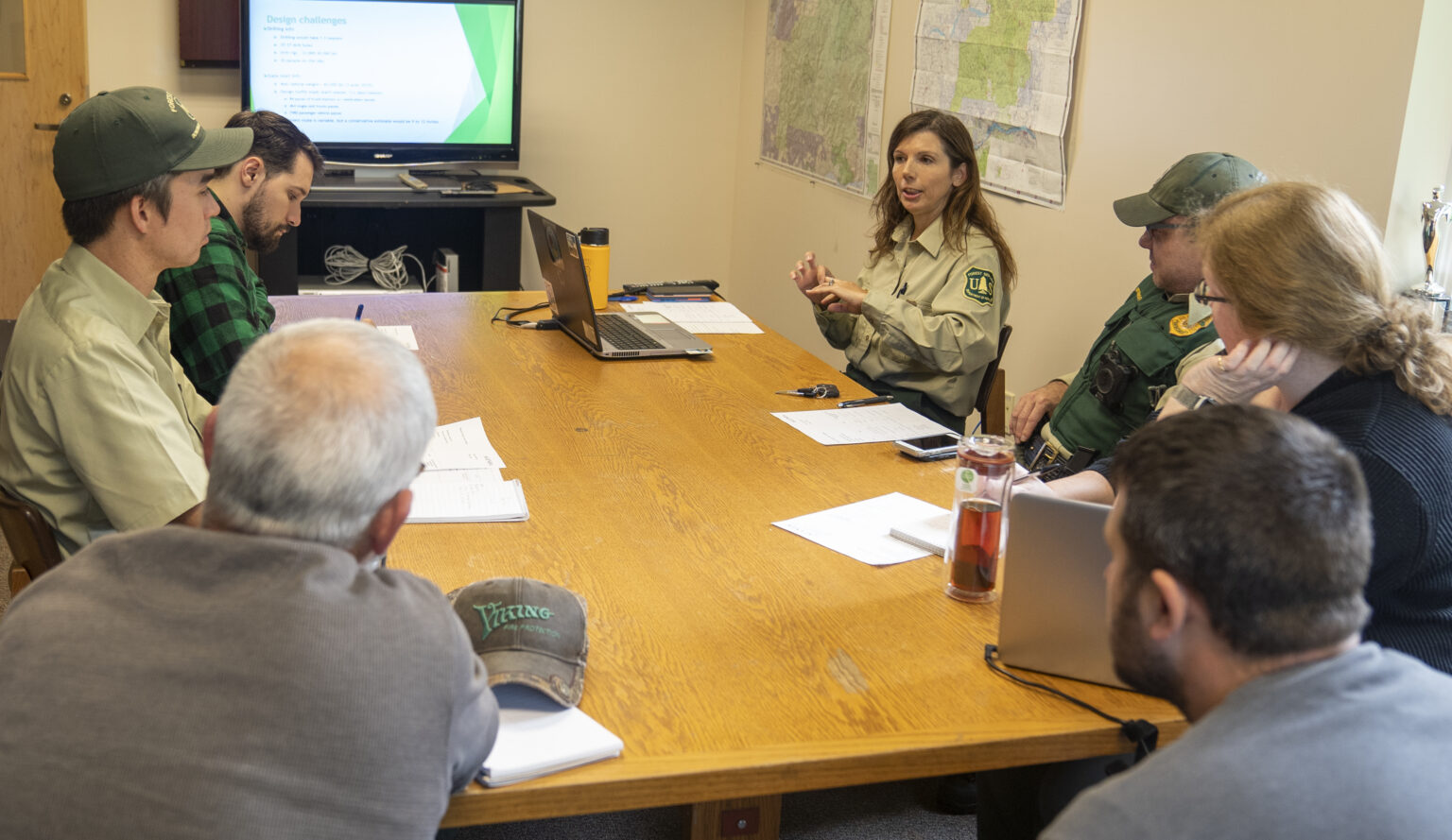Capital Chatter: Hansell is recovering
Published 7:00 am Thursday, April 16, 2020

- Capital Chatter: The real reason that HB 2020 failed
Let’s start with some good news. Sen. Bill Hansell, R-Athena, is recovering well.
No, he didn’t have Covid-19. But he might have. So his initial time in the hospital was treated as if he were a coronavirus patient. The nurses wore personal protective equipment that made them look like “Star Wars” characters. Anything Hansell touched, including any food he didn’t eat, was carefully discarded in case it was contaminated with the virus.
Trending
When Hansell and I talked by phone the other day, he raised a good question: Given the current medical protocols, would he have been admitted to the hospital if his symptoms had not mimicked Covid-19?
He turned out to have a different but still potentially dangerous condition: blood clots in his lungs.
“I’m so grateful they discovered it,” he said. “At the time, pulmonary embolisms were the furthest thing from my mind. Who would have thought?”
His experience became a health lesson in why it’s important to get up and move around, so as to help the heart and blood flow, instead of sitting for long periods.
It’s 272 miles from Hansell’s driveway in Eastern Oregon to the State Capitol in Salem, a drive he has made countless times. He usually pops in an audiobook, sets cruise control and lets the miles roll by. Now he understands the importance of taking breaks.
Though he didn’t have Covid-19, Hansell is an advocate of social distancing and wearing facemasks. And his sense of humor remains intact. On Easter, he posted a Facebook photo of kissing his wife while both wore matching masks.
Trending
Hansell’s medical travails began with pain when he breathed that was like having a bruised or cracked rib. With a temperature of 101, he went to urgent care on a Saturday. He was checked out, swabbed for coronavirus and sent home. His breathing later became shallower, the pain increased and he was admitted to the hospital, where the blood clots were diagnosed.
Until Covid-19 test results came back, which were negative, the hospital staff wisely took precautions as if he had the virus. “I guess you could say I’ve been behind the veil of this Covid stuff to see what kind of protocols and medical treatment you get,” he said.
He didn’t worry about contracting Covid-19 while in the hospital. The experience reinforced his confidence in the medical professionals. “We just have to make sure policy-wise that they get all the PPE they need,” he said, which also would allow rural hospitals to resume some non-urgent procedures.
Medical, dental and veterinary clinics have suffered financially from the state bans on performing most non-urgent surgeries and other procedures that entailed use of personal protective equipment. So have hospitals, especially in rural areas.
Because of the resulting furloughs and layoffs, more than 25,800 Oregonians in the health-care and social assistance fields have applied for unemployment since March 15, according to figures released Thursday.
At some point, Hansell and other legislators will meet in special session to deal with the costs and other aspects of the state’s coronavirus response. He’s not in a rush. It would be unproductive to hold a special session before state officials have a clear picture of the state’s revenue outlook and how much help Oregon will get from the federal government.
“Let’s meet when we have the facts and have the issues and know where the resources are,” he said.
The economic suffering felt by individual Oregonians and businesses will translate into substantially less income tax and other revenue for the state general fund.
“Our state’s main tax source is income tax. If you’re not working, you’re not paying income tax,” he said. “Everything is so interconnected.”
The Oregon Lottery, whose proceeds help finance schools and other programs, turned off its lucrative video poker machines when people were barred from hanging out in eating and drinking establishments. Travel and tourism restrictions mean local governments will collect far less in lodging taxes. With people driving much less, the state and local governments will have less gas tax revenue for road projects.
Mixed reaction to tri-state collaboration: This week, Gov. Kate Brown announced that she and the governors of Washington and California will share ideas and resources for reopening their state economies.
Senate Minority Leader Herman Baertschiger Jr ., R-Grants Pass, doesn’t like the idea. He issued this statement:
“The Western States Pact isn’t good for Oregon. What works in Seattle, a known COVID-19 hot-spot, may not work in Oregon — let alone rural Oregon. My caucus and I are having a difficult time understanding why communities in Oregon that have not been impacted by COVID-19 can’t return to business sooner than others in the state. Oregon should be addressing conditions on a local level before worrying about what other states are doing.”
A senator representing an adjacent district in Southern Oregon had a different view.
“Deciding on a pace for easing restrictions while keeping the virus contained is a tricky business; harnessing our public health knowledge and resources with two larger states should give us more confidence going forward,” Sen. Jeff Golden, D-Ashland, wrote in his constituent newsletter. “Governor Brown has made it clear that this will not be a one-size fits all approach and each state will make decisions that work best for their residents, but by coordinating our efforts we will make it safer for us all much sooner.”
Stay home. Or not: Congressman Peter DeFazio, a Democrat from Springfield, strongly supports Brown’s “Stay Home, Save Lives” initiative.
“Just remember, we are doing really well in Oregon. Keep it up,” DeFazio said during a telephone town hall meeting. “Keep up the distancing. Only go out when you have to.”
He is working from his Springfield home, and he and his wife have been using grocery delivery from Fred Meyer and Albertsons.
In contrast, state Sen. Dennis Linthicum, R-Klamath Falls, says the social distancing and business restrictions are not “reasonable, logical or rational.”
“We are allowing those with no vested interest in our home, retail or industrial businesses to quarantine and shutter our enterprises when it should be our responsibility to ensure our own safety and the safety of those in our communities. Besides, it looks as though people are acting out of fear and a false belief that the government can save them,” he wrote in his constituent newsletter.
“Lastly, we are quarantining the wrong population. The elderly and at-risk populations can be easily quarantined and cared for with far less cost and tragedy to the overall economy.”
Good auditing: Secretary of State Bev Clarno announced that an audit report about limitations in the state’s Prescription Drug Monitoring Program won the Excellence in Accountability Award from the National State Auditors Association. She lauded the state auditors as “an exceptional group of public servants.”
Dick Hughes, who writes the weekly Capital Chatter column, has been covering the Oregon political scene since 1976. Contact him at TheHughesisms@Gmail.com , Facebook.com/Hughesisms, YouTube.com/DickHughes or Twitter.com/DickHughes.





